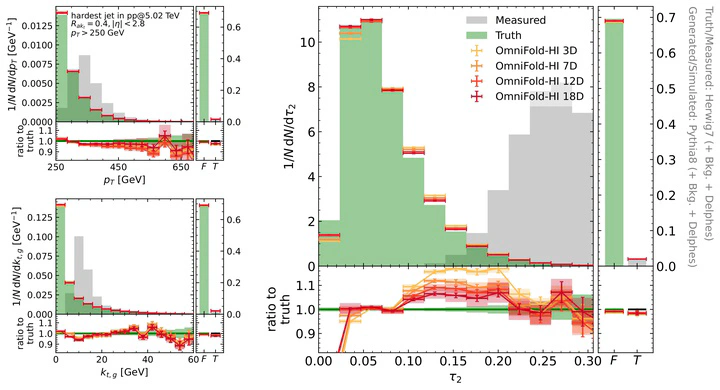High-Dimensional Unfolding in Large Backgrounds

Abstract
We propose new methodologies in multi-dimensional unfolding in dense environments, and show that incorporating auxiliary observables can significantly improve performance. Our approach builds on the ML-based OmniFold algorithm, which we extend to account for background, detector acceptance, efficiency, and uncertainties, enabling its application in high-luminosity and heavy-ion collision settings. We derive this algorithm and demonstrate its mathematical and numerical equivalence to expectation-maximization and Iterative Bayesian Unfolding (IBU). We illustrate our method with a realistic jet substructure analysis incorporating both large background and detector simulation. Our analysis includes up to 18 observables, leading to significantly improved performance in the unfolding. We propose a method that integrates calibration and unfolding into a single, consistent framework, and demonstrate enhanced performance relative to traditional methods. These developments lay the groundwork for robust, high-dimensional, ML-based unfolding and calibration in complex collider environments across a wide range of analyses.
Publication
arXiv:2507.06291